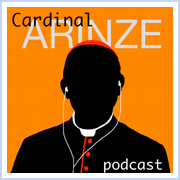From: Luke 6:20-26
The Beatitudes and the Curses[20] And He (Jesus) lifted up His eyes on His disciples, and said: "Blessed are you poor, for yours is the Kingdom of God. [21] Blessed are you that hunger now, for you shall be satisfied. Blessed are you that weep now, for you shall laugh. [22] Blessed are you when men hate you, and when they exclude you and revile you, and cast out your name as evil, on account of the Son of Man! [23] Rejoice in that day, and leap for joy, for behold, your reward is great in Heaven; for so their fathers did to the prophets. [24] But woe to you that are rich, for you have received your consolation. [25] Woe to you that are full now, for you shall hunger. Woe to you that laugh now, for you shall mourn and weep. [26] Woe to you, when all men speak well of you, for so their fathers did to the false prophets."
_________________________
Commentary:20-49. These thirty verses of St. Luke correspond to some extent to the Sermon on the Mount, an extensive account of which St. Matthew gives us in Chapters 5 to 7 in his Gospel. It is very likely that in the course of His public ministry in different regions and towns of Israel Jesus preached the same things, using different words on different occasions. Under the inspiration of the Holy Spirit each evangelist would have chosen to report those things which he considered most useful for the instruction of his immediate readers--Christians of Jewish origin in the case of Matthew, Gentile converts in the case of Luke. There is no reason why one evangelist should not have selected certain items and another different ones, depending on his readership, or why one should not have laid special stress on some subjects and shortened or omitted accounts of others.
In this present discourse, we might distinguish three parts--the Beatitudes and the curses (6:20-26); love of one's enemies (6:27-38); and teaching on uprightness of heart (6:39-49).
Some Christians may find it difficult to grasp the need of practicing the moral teaching of the Gospel so radically, in particular Christ's teaching in the Sermon on the Mount. Jesus is very demanding in what He says, but He is saying it to everyone, and not just to His Apostles or to those disciples who followed Him closely. We are told expressly that "when Jesus finished these sayings, the crowds were astonished at His teaching" (Matthew 7:28). It is quite clear that the Master calls everyone to holiness, making no distinction of state-in-life, race or personal circumstances. This teaching on the universal call to holiness was a central point of the teaching of (Blessed) Monsignor Escriva de Balaguer. The Second Vatican Council expressed the same teaching with the full weight of its authority: everyone is called to Christian holiness; consider, for example, just one reference it makes, in "Lumen Gentium", 11: "Strengthened by so many and such great means of salvation, all the faithful, whatever their condition or state--though each in his or her own way--are called by the Lord to that perfection of sanctity by which the Father Himself is perfect."
In the Sermon on the Mount Jesus is not proposing an unattainable ideal, useful though that might be to make us feel humble in the light of our inability to reach it. No. Christian teaching in this regard is quite clear: what Christ commands, He commands in order to have us do what He says. Along with His commandment comes grace to enable us to fulfill it. Therefore, every Christian is capable of practising the moral teaching of Christ and of attaining the full height of his calling -- holiness --not by his own efforts alone but by means of the grace which Christ has won for us, and with the abiding help of the means of sanctification which He left to His Church. "If anyone plead human weakness to excuse Himself for not loving God, it should be explained that He who demands our love pours into our hearts by the Holy Spirit the fervor of His love, and this good Spirit our Heavenly Father gives to those that ask Him. With reason, therefore, did St. Augustine pray:
`Give Me what Thou command, and command what You please.' As, then, God is ever ready to help us, especially since the death of Christ our Lord, by which the prince of this world was cast out, there is no reason why anyone should be disheartened by the difficulty of the undertaking. To him who loves, nothing is difficult" ("St. Pius V Catechism", III, 1, 7).
20-26. The eight Beatitudes which St. Matthew gives (5:3-12) are summed up in four by St. Luke, but with four opposite curses. We can say, with St. Ambrose, that Matthew's eight are included in Luke's four (cf. "Expositio Evangelii Sec. Lucam, in loc."). In St. Luke they are in some cases stated in a more incisive, more direct form than in the First Gospel, where they are given with more explanation: for example, the first beatitude says simply "Blessed are you poor", whereas in Matthew we read, "Blessed are the poor in spirit", which contains a brief explanation of the virtue of poverty.
20. "The ordinary Christian has to reconcile two aspects of this life that can at first seem contradictory. There is on the one hand "true poverty", which is obvious and tangible and made up of definite things. This poverty should be an _expression of faith in God and a sign that the heart is not satisfied with created things and aspires to the Creator; that it wants to be filled with love of God so as to be able to give this same love to everyone. On the other hand, an ordinary Christian is and wants to be "one more among his fellow men", sharing their way of life, their joys and happiness; working with them, loving the world and all the good things that exist in it; using all created things to solve the problems of human life and to establish a spiritual and material environment which will foster personal and social development [...].
"To my way of thinking the best examples of poverty are those mothers and fathers of large and poor families who spend their lives for their children and who with their effort and constancy--often without complaining of their needs--bring up their family, creating a cheerful home in which everyone learns to love, to serve and to work" ([Blessed] J. Escriva, "Conversations" , 110f).
24-26. Our Lord here condemns four things: avarice and attachment to the things of the world; excessive care of the body, gluttony; empty-headed joy and general self-indulgence; flattery, and disordered desire for human glory--four very common vices which a Christian needs to be on guard against.
24. In the same kind of way as in verse 20, which refers to the poor in the sense of those who love poverty, seeking to please God better, so in this verse the "rich" are to be understood as those who strive to accumulate possessions heedless of whether or not they are doing so lawfully, and who seek their happiness in those possessions, as if they were their ultimate goal. But people who inherit wealth or acquire it through honest work can be really poor provided they are detached from these things and are led by that detachment to use them to help others, as God inspires them. We can find in Sacred Scriptures a number of people to whom the beatitude of the poor can be applied although they possessed considerable wealth--Abraham, Isaac, Moses, David, Job, for example.
As early as St. Augustine's time there were people who failed to understand poverty and riches properly: they reasoned as follows: The Kingdom of Heaven belongs to the poor, the Lazaruses of this world, the hungry; all the rich are bad, like this rich man here. This sort of thinking led St. Augustine to explain the deep meaning of wealth and poverty according to the spirit of the Gospel: "Listen, poor man, to my comments on your words. When you refer to yourself as Lazarus, that holy man covered with wounds, I am afraid your pride makes you describe yourself incorrectly. Do not despise rich men who are merciful, who are humble: or, to put it briefly, do not despise poor rich men. Oh, poor man, be poor yourself; poor, that is, humble [...]. Listen to me, then. Be truly poor, be devout, be humble; if you glory in your ragged and ulcerous poverty, if you glory in likening yourself to that beggar lying outside the rich man's house, then you are only noticing his poverty, and nothing else. What should I notice you ask? Read the Scriptures and you will understand what I mean. Lazarus was poor, but he to whose bosom he was brought was rich. `It came to pass, it is written, that the poor man died and he was brought by the angels to Abraham's bosom.' To where? To Abraham's bosom, or let us say, to that mysterious place where Abraham was resting. Read [...] and remember that Abraham was a very wealthy man when he was on earth: he had abundance of money, a large family, flocks, land; yet that rich man was poor, because he was humble. `Abraham believed God and he was reckoned righteous.' [...] He was faithful, he did good, received the commandment to offer his son in sacrifice, and he did not refuse to offer what he had received to Him from whom he had received it. He was approved in God's sight and set before us as an example of faith" ("Sermon", 14).
To sum up: poverty does not consist in something purely external, in having or not having material goods, but in something that goes far deeper, affecting a person's heart and soul; it consists in having a humble attitude to God, in being devout, in having total faith. If a Christian has these virtues and also has an abundance of material possessions, he should be detached from his wealth and act charitably towards others and thus be pleasing to God. On the other hand, if someone is not well-off he is not justified in God's sight on that account, if he fails to strive to acquire those virtues in which true poverty consists.
___________________________
Source: "The Navarre Bible: Text and Commentaries". Biblical text taken from the Revised Standard Version and New Vulgate. Commentaries made by members of the Faculty of Theology of the University of Navarre, Spain. Published by Four Courts Press, Kill Lane, Blackrock, Co. Dublin, Ireland. Reprinted with permission from Four Courts Press and Scepter Publishers, the U.S. publisher.

















